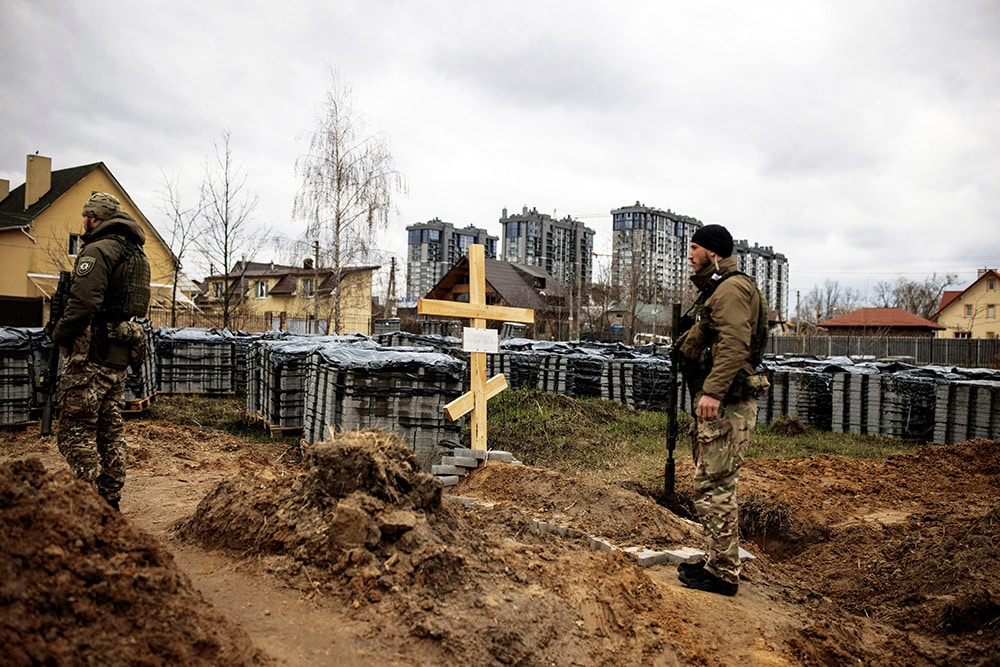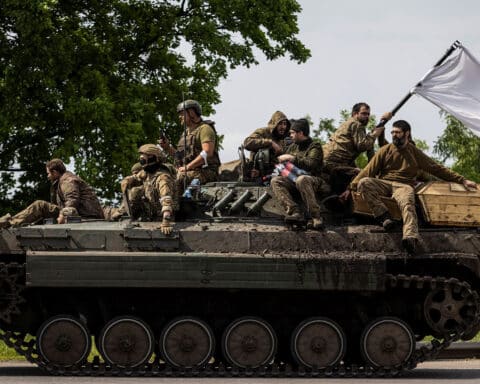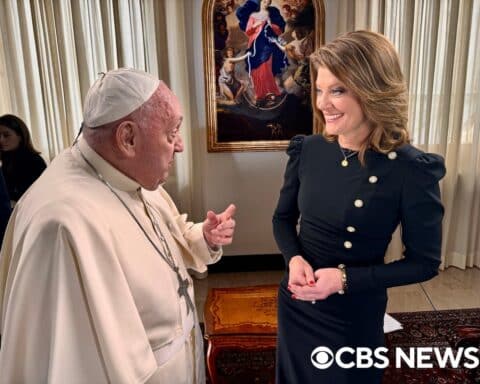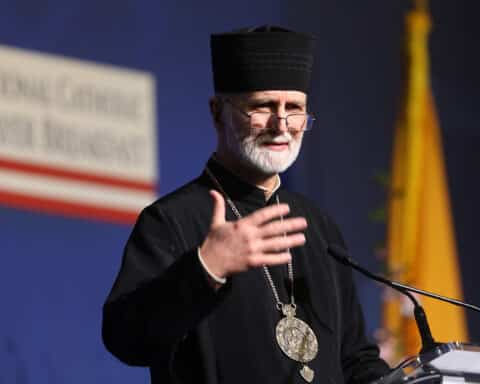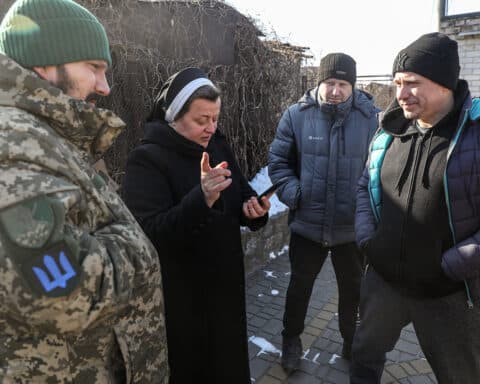“Every war leaves our world worse than it was before,” Pope Francis wrote in Fratelli Tutti, his 2020 encyclical on fraternity and social friendship. “War,” the pope continued, “is a failure of politics and of humanity, a shameful capitulation, a stinging defeat before the forces of evil. Let us not remain mired in theoretical discussions, but touch the wounded flesh of the victims. … Let us hear the true stories of these victims of violence, look at reality through their eyes, and listen with an open heart to the stories they tell. In this way, we will be able to grasp the abyss of evil at the heart of war.”
Divine Mercy Sunday, April 24, marks the two-month anniversary of Russia’s unjustified invasion of Ukraine. Since the first rockets were launched in late February, the United Nations reported that, as of April 10, nearly 2,000 Ukrainian civilians have died and another 2,500 have been injured. A day after that report, however, Mayor Vadym Boychenko of Mariupol, Ukraine, told the Associated Press that officials are estimating that more than 10,000 civilians were killed during Russia’s siege on the eastern port city — a number that could double once the rubble can be cleared, the mayor said.
In his interview with the Associated Press, Boychenko said that the weeks of attacks have left bodies of Mariupol’s people “carpeted through the streets.” The AP also reported that Boychenko “gave new details of recent allegations by Ukrainian officials that Russian forces have brought mobile cremation equipment to Mariupol to dispose of the corpses of victims of the siege.”
During the Russian attack on Mariupol, several people were hiding in the office of Caritas Ukraine — the charitable arm of the Holy See in the country — when a Russian tank fired on the building, killing seven people. Caritas officials said that while the attack might have happened as early as March 15, the deaths only became known in mid-April because of the “absence of communication and lack of access to the premises.”
These tragic deaths are heart-wrenching, but the cost of this war goes beyond the thousands of Ukrainians and Russians who have died or have been wounded. The United Nations has stated that the number of Ukrainian refugees fleeing the violence has surpassed 4.5 million people — half of whom are children.
Pope Francis spoke of all these tragedies in his Angelus address on March 27, when he called the war “a place of death where fathers and mothers bury their children, where men kill their brothers and sisters without even having seen them, where the powerful decide and the poor die.” Two weeks later, on Palm Sunday, as the war stretched on, the pope made his strongest plea yet for peace. “Let the weapons be put down,” he said. “Let the Easter truce begin. But not to provide more weapons and pick up the combat again — no! — a truce that will lead to peace, through real negotiation that is even disposed to some sacrifice for the good of the people. In fact, what victory is there in planting a flag on a pile of rubble?”
There is talk of Pope Francis making an apostolic visit to Ukraine’s capital city of Kyiv. The Vatican is exploring the logistics — namely, whether Ukrainian forces can keep him safe, but also, according to Cardinal Pietro Parolin, the Vatican secretary of state, “whether it would really contribute to ending the war.”
A papal visit to Ukraine would be a strong public display of the Church’s insistence on peace, but whether or not he ultimately travels to Kyiv, Pope Francis has made it clear that this war, these victims, must remain a priority for the Church — which is to say, each of us, together. In that vein, we must ask ourselves: Have we continued to pray and fast for the people of Ukraine and Russia, or have we allowed this war — and, again, these victims — to fade into the background, to become just another news story that we scroll past?
On this Divine Mercy Sunday, as we continue to celebrate the miracle of Easter, let us be conduits of God’s mercy. Let us remember that he does not take sides in politics or in war. His desire is for us to recognize that those we perceive to be our enemies are, in fact, our brothers and sisters. And while we are not worthy of it, his love is as boundless as his power.
To again quote Pope Francis’ Fratelli Tutti : “Let us ask [God] to anoint our whole being with the balm of his mercy, which heals the injuries caused by mistakes, misunderstandings and disputes. And let us ask him for the grace to send us forth, in humility and meekness, along the demanding but enriching path of seeking peace.”
Amen.
Our Sunday Visitor Editorial Board: Gretchen R. Crowe, Scott P. Richert, Scott Warden, York Young

